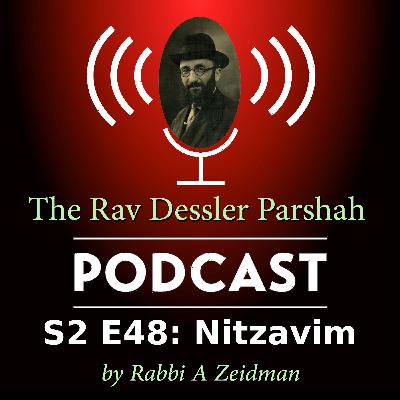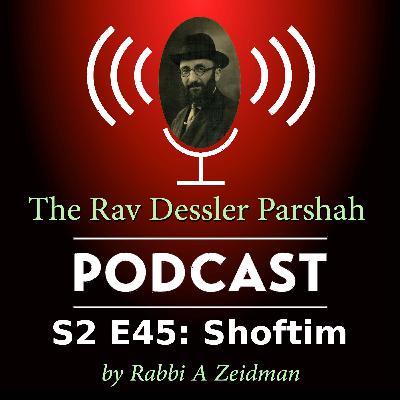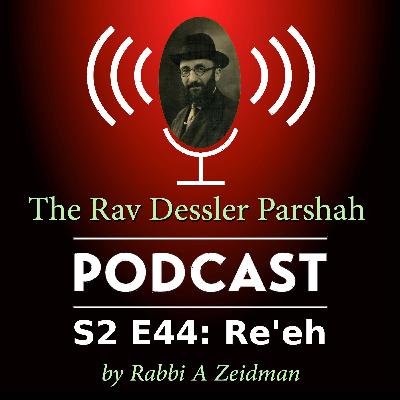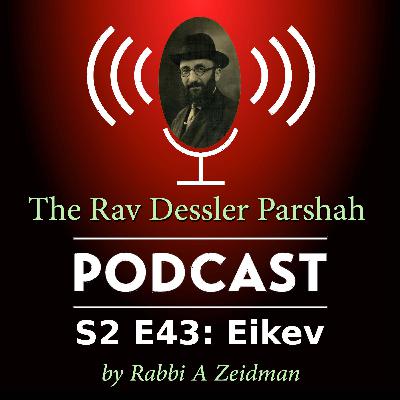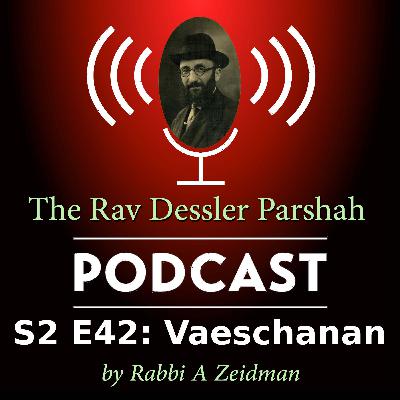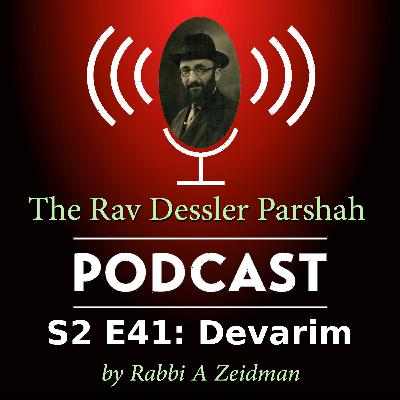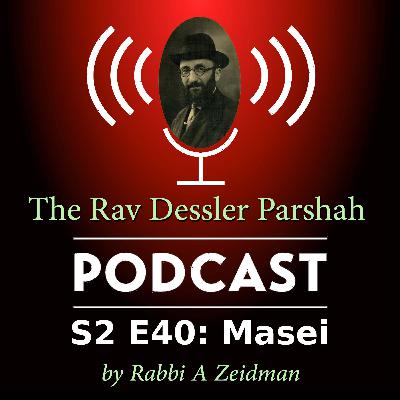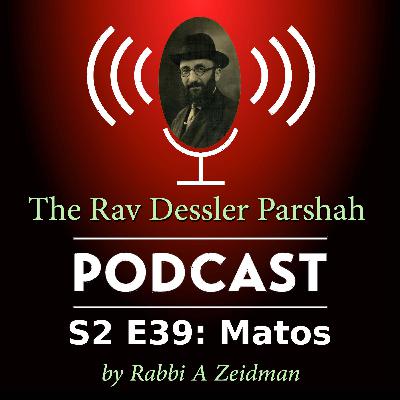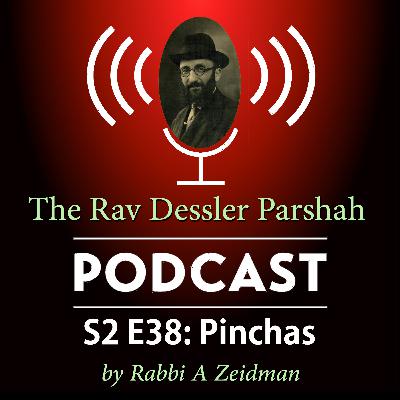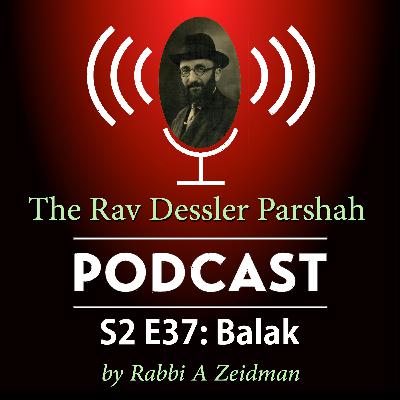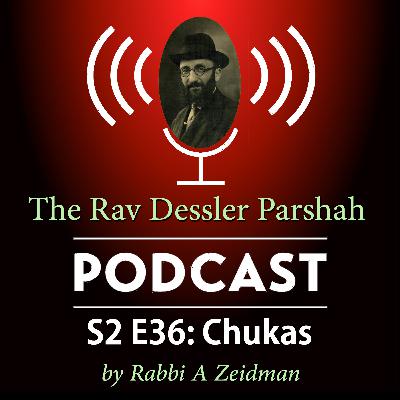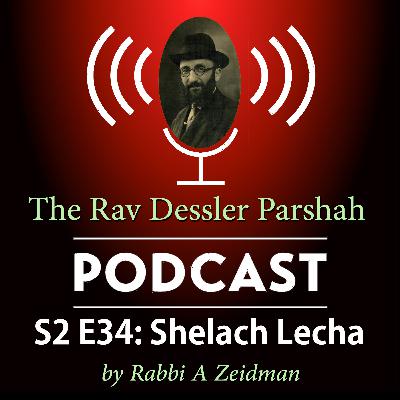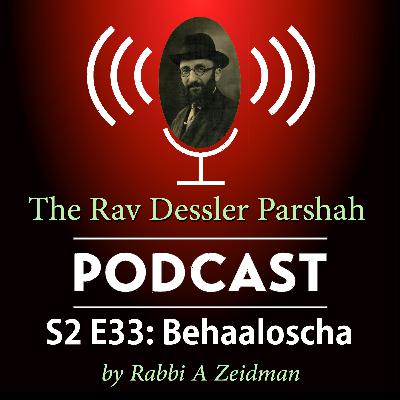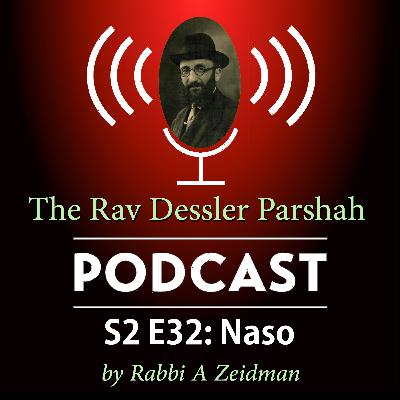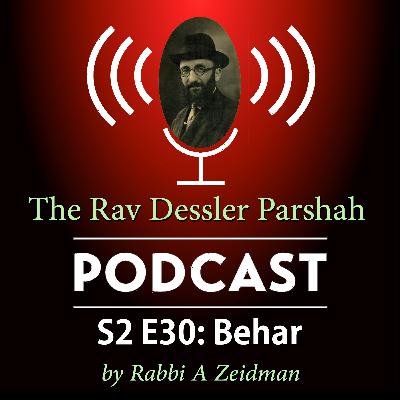Discover The Philosophy of Giving - Rav Dessler Podcast
The Philosophy of Giving - Rav Dessler Podcast

135 Episodes
Reverse
Why does Hashem stretch out the downfall of Egypt across ten plagues instead of ending it instantly?
Perhaps there is more to Divine justice than meets the eye? This episode uncovers the unexpected kindness hidden within the plagues—and why revenge is sweeter than you think.
If everything will be clear, and the world filled with divine truth, what will happen to our ability to choose? What’s the point of life without choice? In this episode, we explore the nature of free will in the Messianic era — and what that means for us now.
Bikurim celebrates the first fruits , the power of new beginnings. But Elul comes at the end of the year. Or does it? In this episode, we compare Bikurim to Elul to ask: is Elul the closing chapter of the year, or the first step toward something new? The answer may change our approach to this month
Why would the Torah tell a soldier to carry a spade to coverhis excrement - even in the middle of a war? In this episode, we delve into the filth itself to uncover its kabbalistic meaning and why we are naturally repelled by it.
What’s the link between the negligent killer in exile and the death of the Kohen Gadol? In this episode, we uncover a surprising connection — and how it reveals not just Hashem’s strict justice, but His deep love for every Jew.
Adam was a vegetarian. Noach was not. In this episode, we take a macro look at history to see how society’s relationship with eating meat has shifted — and whether vegetarianism is ideal, permitted, or discouraged.
The sages say everything is in Hashem’s hands — except the fear of Him. But what about love? And if fear is ours alone, why do we pray for help with it? In this episode, we tackle some of the biggest paradoxes about God’s power, and what they mean for our relationship with Him.
In Shema we say hayom — “today” — even though the Mitzvos were given thousands of years ago. Why? In this episode, we will look into what it means to live fully in the present rather than riding on the ripples of the past. We'll also explore if a mitzvah once hard but now easy still earns the same reward, and discover how growth can continue in the afterlife.
God could have placed Ruth in a righteous home — so why was she born into Moab? In this episode, we explore how a negative environment can sometimes spark the strongest desire for truth. And how the same force can pull both ways.
In this episode, we explore what exile really achieves — and what it reveals about the soul after death. What happens to a person when they die? Who are they without a body? The Torah’s choice of exile holds a deep answer to these questions.
Why did the tribes of Reuven and Gad choose land outside of Israel — and why for their sheep? In this episode, we dig beneath the surface and uncover a deeper spiritual mission: the responsibility to uplift sparks of holiness hidden in the physical world. And yes — even sheep have a role to play.
When Moshe asks for a successor, God chooses Yehoshua — and the shift speaks volumes. In this episode, we explore how the leaders of each generation reveal the soul of their people. Looking at the arc of history, we uncover a deeper pattern: some generations are led by the mind, others by the heart — and their leaders reflect exactly that.
Why did people worship idols — and why was it so compelling? In this episode, we explore what made avodah zarah so attractive, how it actually worked, and what that reveals about the deepest question of all: are we serving Hashem… or just serving ourselves?
A rebbe isn’t just a wise person — he’s a vessel through which messages flow. In this episode, we explore why we need a rebbe to help us interpret life, and what happens when that relationship breaks down.
How we see life makes all the difference. From the story of Dasan and Aviram’s perspective on Egypt to understanding the deeper meaning behind current events, this episode invites you to look beyond the surface and discover the hidden layers of meaning in everything around us.
Tzitzis aren’t just ritual strings — they’re part of the Shema, part of our identity, and part of our spiritual memory. In this episode, we explore the third paragraph of Shema, what it’s doing there, and how those little threads are trying to keep us from unravelling.
Moshe knew he was the greatest leader in history — and yet the Torah calls him the most humble. In this episode, we explore what real humility looks like, and how it can coexist with absolute greatness.
Is the Nazir holy for abstaining — or flawed for pulling away? This episode explores a deeper, more analytical question: when we do something non-ideal for a higher purpose, is it still a blemish, or does the goal transform the act completely? A more nuanced discussion this week — come thinking.
A relationship with Hashem is meant to be deep and genuine — but it's easy to slip into serving for the sake of reward. In this episode, we reflect on what it means to connect to Hashem not for what we gain, but for who we become.
We often think of tzedakah as one person giving and another receiving — but the Torah's view is far more profound. In this episode, we explore who truly benefits when we give, and why the act of giving might elevate the giver even more than the one in need.



